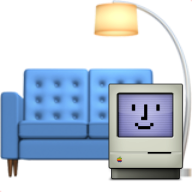macOS Installers
macOS Installer Downloads
IPSW PKG
IPSW files are for Apple Silicon Macs (M1 and newer)
PKG files are Universal Mac Apps that work on all Macs
PKG files are Universal Mac Apps that work on all Macs
macOS Version | Version | Build | Format | Size | Download |
|---|
Installation Methods
IPSW Files (Apple Silicon)
IPSW files are firmware restore images designed for Apple Silicon Macs (M1, M2, M3, and newer). These files:
- Can be used with Apple Configurator 2 for restoration
- Support DFU (Device Firmware Update) mode recovery
- Include the complete macOS system and recovery partition
- Are approximately 13-15 GB in size
PKG Files (Universal)
PKG installer packages work on all Mac models and contain the full macOS installer application. These files:
- Can be deployed via MDM solutions
- Support command-line installation with
installer - Create a bootable installer when extracted
- Work on both Intel and Apple Silicon Macs
Creating Bootable Media
Using Terminal
bash
sudo /Applications/Install\ macOS\ Sequoia.app/Contents/Resources/createinstallmedia \
--volume /Volumes/MyVolumeRequirements
- USB drive with at least 16 GB capacity
- Administrator privileges
- Full macOS installer application
Deployment Best Practices
Enterprise Deployment
- Test thoroughly before mass deployment
- Stage rollouts to pilot groups first
- Maintain backups before major upgrades
- Document compatibility issues with critical software
MDM Integration
Most MDM solutions support:
- Caching content locally
- Scheduling installation windows
- Enforcing minimum OS versions
- Deferring updates as needed
Useful Resources
- Apple Support - Create bootable installer
- Apple Developer - Installation
- Mr. Macintosh - IPSW Database
Compatibility Notes
System Requirements
Always verify hardware compatibility before upgrading:
- Check minimum RAM requirements (typically 8 GB)
- Ensure adequate storage space (35-45 GB free)
- Verify Mac model compatibility on Apple's website
Known Issues
Consult release notes and community forums for:
- Third-party software compatibility
- Driver updates for peripherals
- Network configuration changes
- Security software updates
